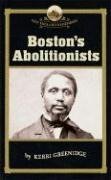About The Book
In 1941, two of the world's leading scientists met in Nazi-occupied Denmark. They were old friends, a mentor and his brilliant former protégé, and...
Read more
together they had changed the world of physics. But one was German and a leading figure in Hitler's nuclear fission program. The other was Danish, half-Jewish, and a statesman in the global physics community. The meeting between Werner Heisenberg and Niels Bohr broke off in embarrassment and strained their relationship for the rest of their lives. What was said – what exactly happened that night – has been fiercely debated ever since. Michael Frayn's Tony Award-winning drama Copenhagen takes the controversial encounter to the stage. Was Heisenberg trying to forestall the development of nuclear weapons? Carrying out atomic espionage? Or just clumsily seeking personal rapprochement across a political chasm? Frayn's characters play through the different interpretations and find that their understandings, like quantum mechanics itself, are rooted in uncertainty. Michael Frayn illuminates the complexities of self-knowledge, memory, and the very possibility of recapturing the past. The production of Copenhagen stirred up a vigorous exchange between the playwright and historians of science. In 2002, the publicity prompted Bohr's family to release previously unavailable documents pertaining to the infamous conversation. In light of the new information, historians were forced to examine the incident yet again. Michael Frayn's Copenhagen in Debate collects essays specially written by leading historians in reaction to the play and the new documents. They debate Frayn's depiction, shed light on the mystery at its center, and reflect on the relation between history and drama. What conclusions can be drawn from Copenhagen? That is for the reader to decide. By special arrangement with the Niels Bohr Archive in Copenhagen, Bohr's now-famous documents are reproduced in this volume.
Hide more




